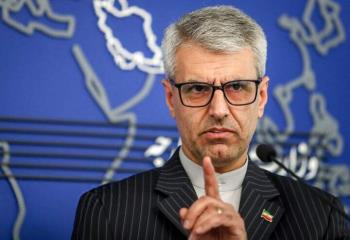Alwaght- The European Union has launched a new military alliance which will have a separate structure from the US-led NATO military alliance signaling a rift between Washington and Brussels.
The EU has moved a step closer towards having a joint military force by signing an agreement on a permanent command structure. PESCO, or Permanent Structured Cooperation, was signed by 23 members of the 28-strong European Union on Monday.
EU foreign policy chief Federica Mogherini supported the move, hailing it as an “historic moment.” Backed by a €5-billion ($6.5-billion) EU defense fund, PESCO “will enable member states to use the economy of scale of Europe and in this manner to fulfil the gap of output that we have.”
The agreement will come into force in December, after which members will be legally bound to participate in projects under PESCO.
Work on the agreement started last year amid uncertainty over the UK’s decision to withdraw from the European Union, and US President Donald Trump’s continued criticism of European NATO members for failing to deliver on defense-spending commitments.
Britain opposes pan-European military forces
European heavyweights Germany and France are leading the effort to bring the EU closer to having a permanent joint armed force. Britain, the leading US ally in Europe, which has been opposing a pan-European military force for decades, is not part of the agreement. Denmark, Ireland, Portugal, and Malta opted out; while Austria, not a member of NATO, agreed to join at the last moment.
Jean-Claude Juncker President of the European Commission has been calling for a stronger Europe on security and defense since his election campaign, saying in April 2014: "I believe that we need to take more seriously the provisions of the existing Treaty that allow those European countries who want to do this to progressively build up a common European defense. I know this is not for everybody. But those countries that would like to go ahead should be encouraged to do so. Pooling defense capacities in Europe makes perfect economic sense." This same ambition was set out in his three-point plan for foreign policy, which was incorporated in the Political Guidelines – the Juncker Commission's political contract with the European Parliament and the European Council.
Joint defense
PESCO is a Treaty-based framework and process to deepen defense cooperation amongst EU Member States who are capable and willing to do so. It will enable Member States to jointly develop defense capabilities, invest in shared projects and enhance the operational readiness and contribution of their armed forces. Following today's notification, the Council should adopt a formal decision establishing PESCO by the end of the year, with the first projects to be identified in parallel.
The European Defense Fund launched by the Commission in June 2017 will boost collaborative projects in the area of defense research, prototype development and joint acquisition of capabilities.
In May, in a speech at NATO headquarters, in Brussels, US President Donald Trump told fellow leaders that “NATO members must finally contribute their fair share.” In July, he repeated the warning in Warsaw. “Europe must do more,” he said. These remarks by the controversial US President did not go down well with many EU-NATO members who have now opted to have an independent defense structure.



























